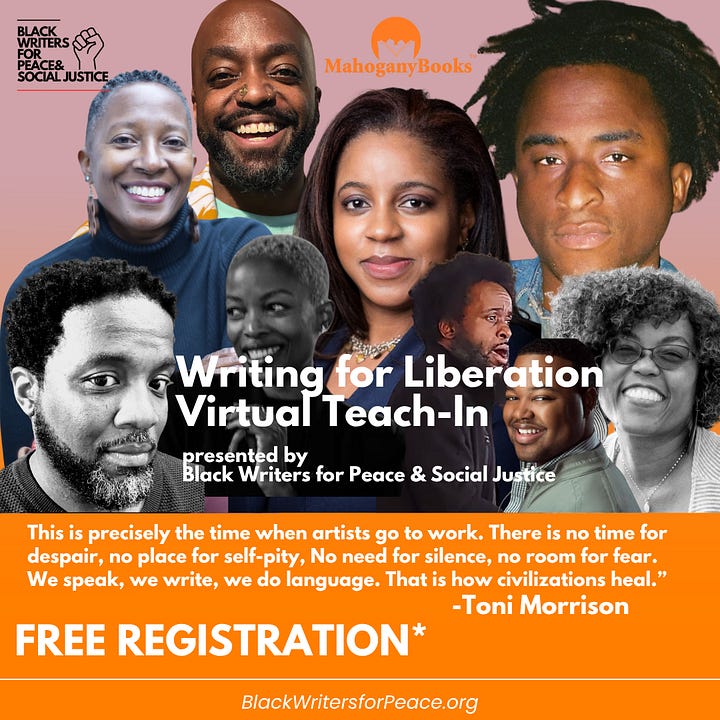Hey y’all,
Lately, I’ve been juggling a lot of media projects, but with a July residency on the horizon for me, writing is on my mind. It’s wild to think it’s been close to three years since my first book came out. So much work and craft, and research went into When They Tell You To Be Good. With all this in mind, I’m glad to share that I’m hosting a two-day teach-in with Black Writers For Peace and Social Justice.
“Writing The Memoir Novel” - Teach-in
Facilitated by Prince Shakur. How do we transform our lived experiences into compelling, artful fiction? In this immersive two-day workshop, writer and author Prince Shakur (When They Tell You to Be Good: A Memoir) will guide participants through the process of blending memoir and novelistic techniques to create dynamic, emotionally resonant narratives.
Together, we’ll explore:
✅ How to mine your lived experiences through research and archival materials for powerful prose
✅ Ways to shape personal history through scene work, dialogue, and shifting time
✅ Strategies for navigating the emotional terrain of writing on difficult topics
✅ How to craft dynamic scenes through creative non-fiction
👉 There’s just 1 week left to register! The class is $90!
👉 Use the code BlackWritersTeach-In2025 on Eventbrite for 50% off registration.
If cost is a barrier, please apply for a scholarship — I want this to be accessible:
🔗 Apply for a scholarship here
📌 Deadline for scholarship apps: June 20th
Whether you’re working on memoir, essays, or just trying to get started, this space is for you. Let’s write, learn, and imagine together.
—Prince


About When They Tell You To Be Good
When They Tell You to Be Good charts Prince Shakur’s political coming of age from closeted queer kid in a Jamaican family to radicalized adult traveler, writer, and anarchist in Obama and Trump’s America. Shakur journeys from France, the Philippines, South Korea, and more to discover the depths of the Black experience, and engages in deep political questions while participating in movements like Black Lives Matter and Standing Rock. By the end, Shakur reckons with his identity, his Jamaican family’s immigration to the US before his birth, and the intergenerational impacts of patriarchal and colonial violence.




